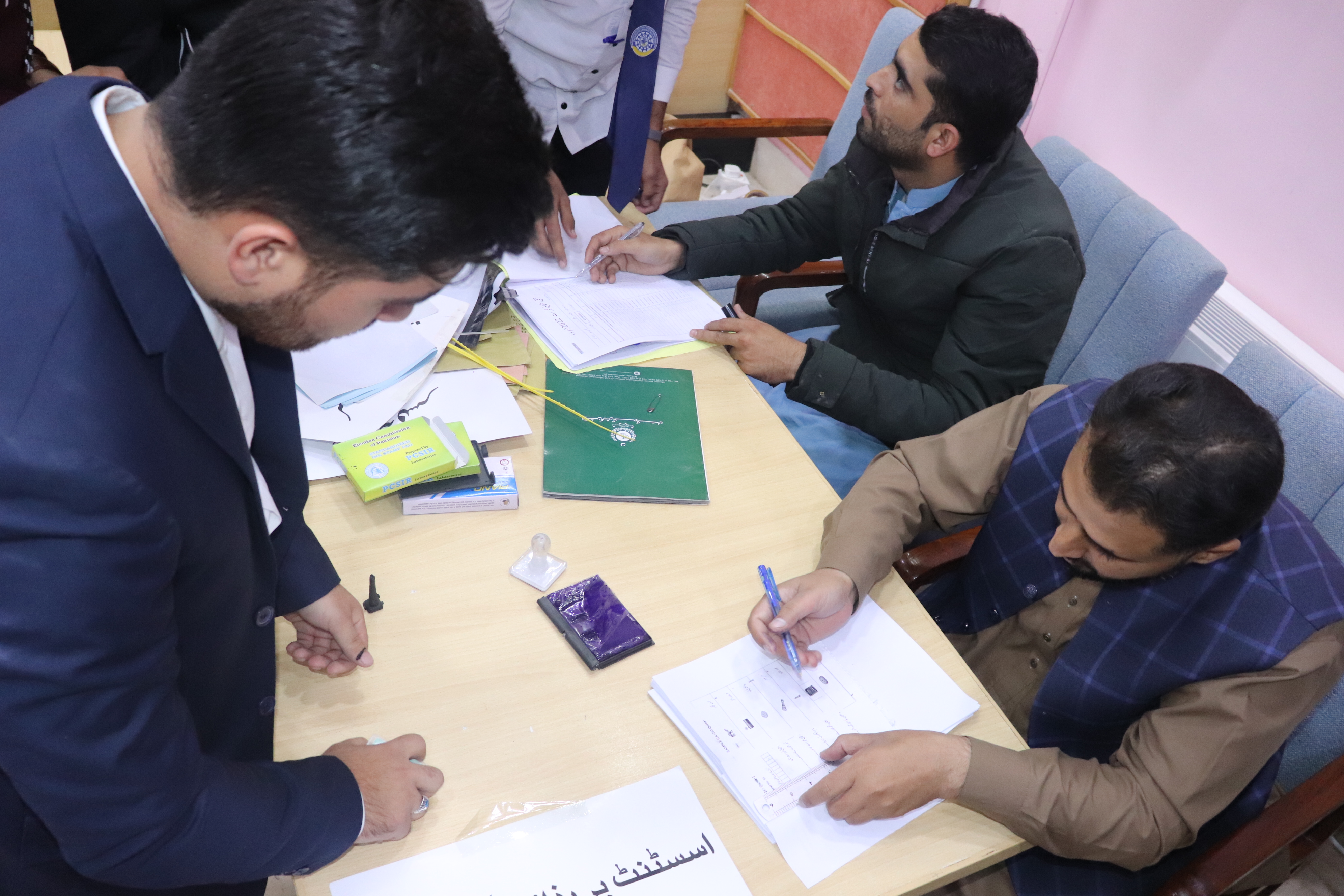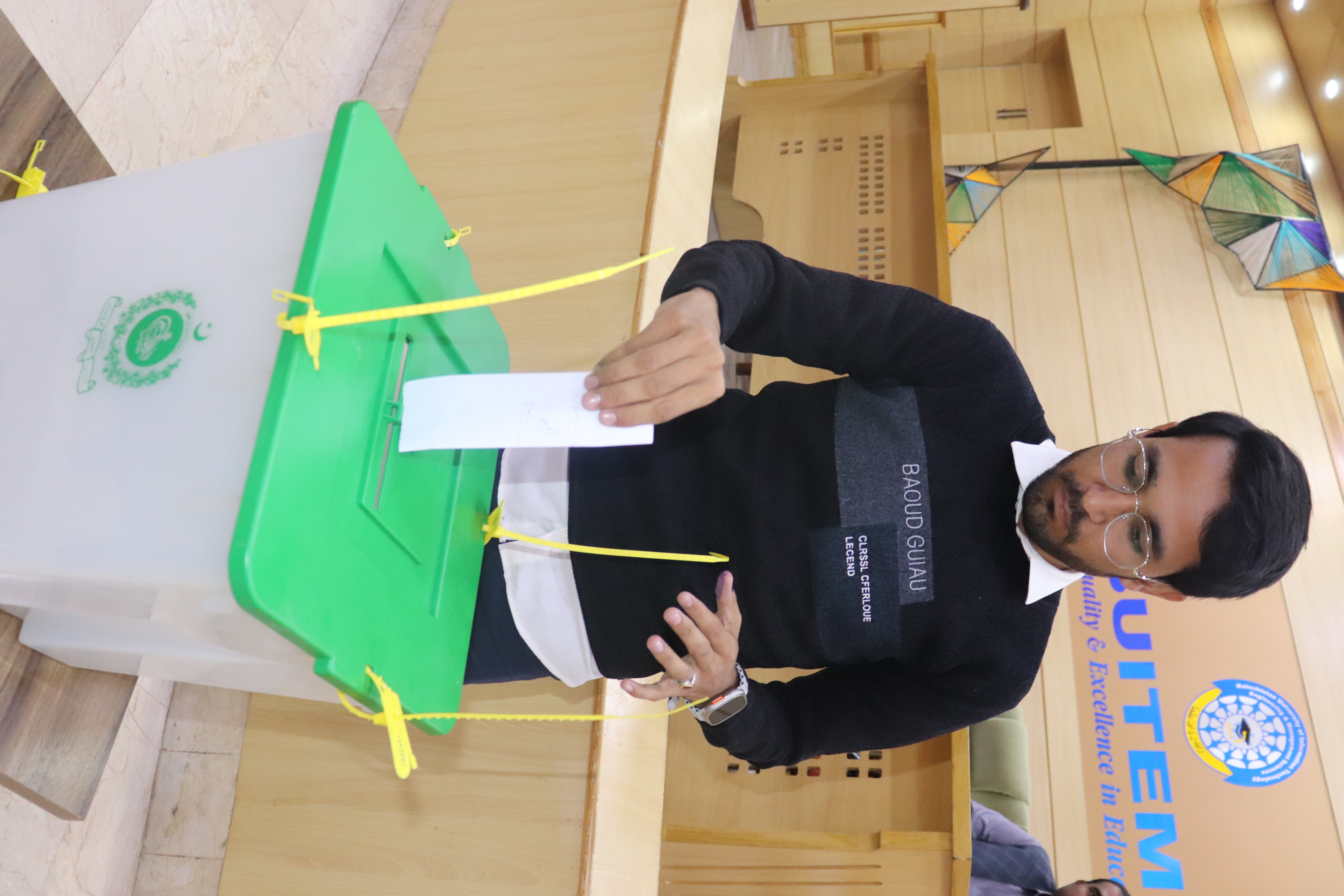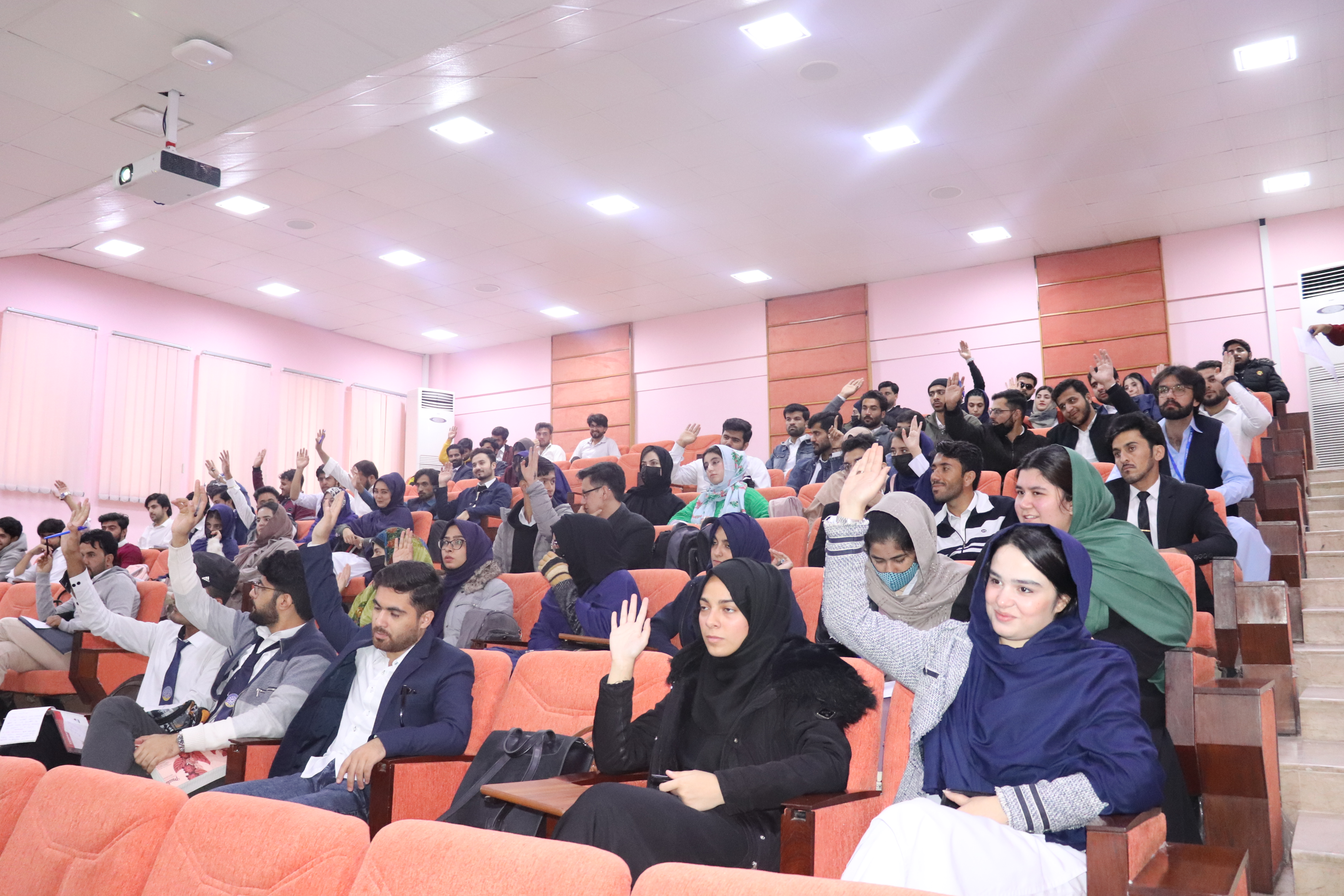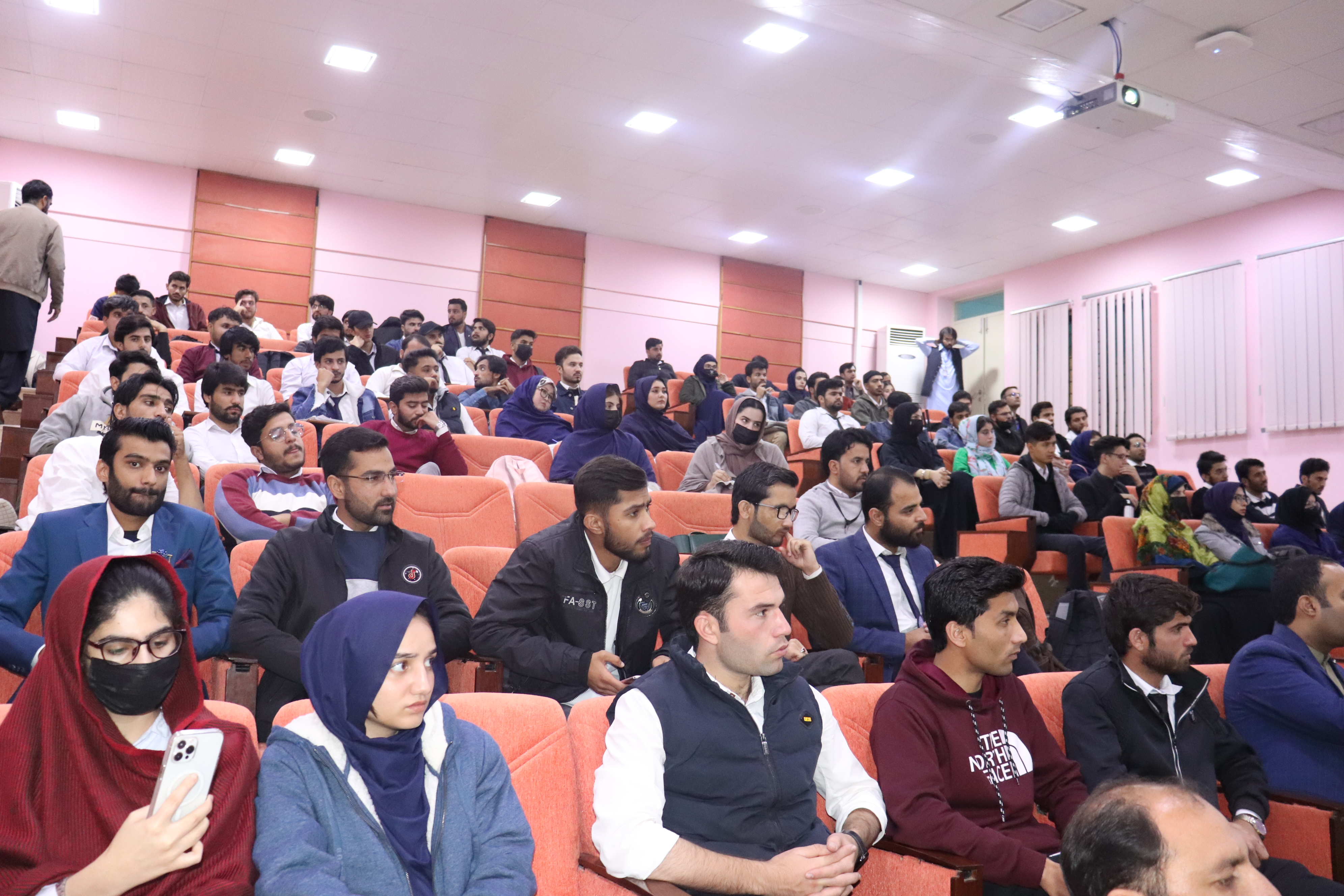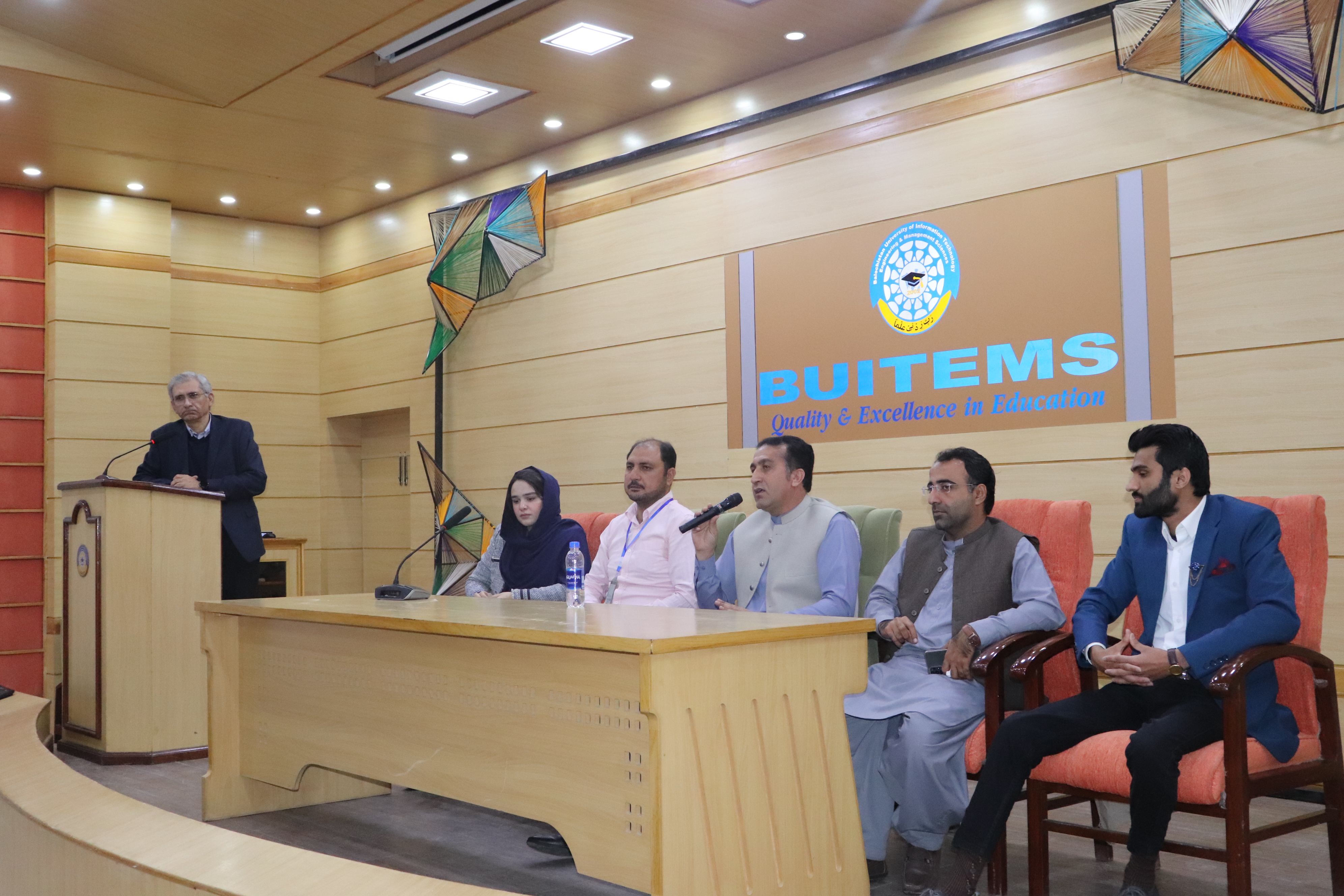
November 07: A consultative session with the students and faculty of the Balochistan Institute of Technology and Management Sciences (BUITEMS) was held at the Pink Hall of the university in collaboration with UNDP Pakistan. Syed Nazir Ahmed, District Election Commissioner, Quetta and Mr. Ghous Baksh Assistant Director ECP Quetta represented the Election Commission of Pakistan (ECP) at the consultative session.
Mr. Faheem Ahmed Khan, Senior Projects Manager PILDAT, welcomed participants and introduced the panel members. The panel members included Mr. Syed Nazeer Ahmed, District Election Commissioner, Quetta. The Youth Representatives included Ms. Walwala Kakar from the department of International Relations and Mr. Umar Shakeel from the same department. The faculty was represented by Mr. Ikramullah, lecturer the Department of Mass Communication.
During his presentation, Mr. Faheem Ahmed Khan, Senior Projects Manager PILDAT discussed the demographic distribution of registered voters in Pakistan, highlighting 45% of the total registered voters belonging to the age group of 18-35 years. Additionally, he provided a comparative analysis of the voting behaviors shown by the young population of Pakistan and India. Notably, the youth voter participation in India surpassed the overall voter turnout seen in the most recent Indian elections. The panelists agreed that low youth voter participation was a genuine problem, not a myth and gave their views on the low youth voter participation.
The youth representatives in their remarks expressed their distrust in the electoral process and termed it as a ‘sham’ practice where forces other than democratic institutions were deciding the outcome of the elections. They said that their vote does not matter and hence the youth has chosen to stay out of the democratic as well as the electoral system of Pakistan. They said that they were discouraged from engaging in any sort of political activity by the university so much so that each student was asked to submit an affidavit at the time of their admission that they would not involve themselves in any political activity on the campus. This ban in their opinion was killing the very spirit of democracy and it created a culture of hatred against the politicians and the politics.
They urged that the ECP should ensure transparency in the electoral process to bring the youth back into the electoral processes of Pakistan. They also demanded that the ECP should move towards the use of technology and introduce electronic voting machines and internet voting so that the youth can vote sitting at home as the long queues outside the polling stations discouraged them from coming out and voting.
Syed Nazeer Ahmed, District Election Commissioner, Quetta, responding to the remarks of the youth representatives mentioned that the Election Commission was not the Law-making body but merely implements the laws made by the parliament. If the youth want the use of EVMS and Internet voting they should vote and elect such members to the parliament who would legislate to bring about the use of the modern technology into elections.
Earlier Dr. Rehman Khan, Pro Vice-Chancellor in his opening remarks talked about the importance of the youth vote and termed youth as agents of change. He said that the students present in today’s mock polling exercise should educate at least 10 members of their community and neighborhood on the electoral system and the importance of their votes. He thanked PILDAT and ECP for arranging the consultative session at a crucial time when the election date has been announced and a large number of the students of BUITEMS will be casting their votes for the first time.
The session was attended by a total of 107 students: 41 young women and 66 young men.
Following the panel discussion, students enthusiastically took part in a mock polling exercise, actively casting their votes. Their eagerness to experience the democratic process firsthand and engage in meaningful discussions about the topics presented during the panel discussion was evident.
